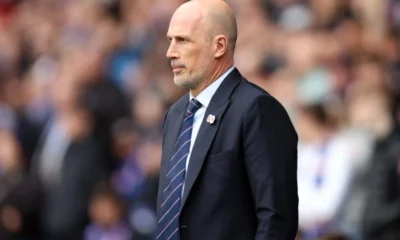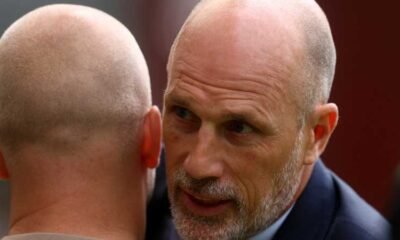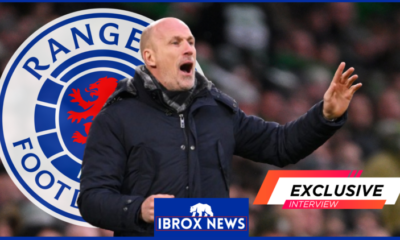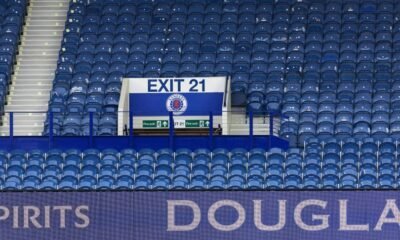Rangers FC
Pressure to nominate a CEO is increasing, therefore Gers are advised who to choose.
Rangers hunt for a new CEO has taken a dramatic twist this week with John Bennett still to replace the now Saudi Arabia based James Bisgrove.
Once reported as an imminent announcement, St Mirren’s vice-chairman dropped out of contention this week only for former Club England managing director Adrian Bevington to almost immediately throw his hat into the ring.
If Bennett is to get his “best in class” dream, the chairman must start making appointments who are capable of taking Rangers to another level.

Adrian Bevington details best person for Rangers CEO job
Stewart Robertson had experience on a local level and Bisgrove had connections in UEFA, however, neither will have had the contacts that Bevington will have acquired in 20 years at the FA as well as his recent work as a consultant.
Part of this recent work for his own company saw him act as a representative for a potential investor from the USA, something that didn’t go down well in the Ibrox boardroom.
With no dog in the fight, Bevington holds no grudges at the failed proposal, however, he knows exactly what is needed for Rangers this time around, as told to The Daily Record:
“This is a very different set of circumstances. It’s not for me to say what anyone on the board at Rangers Football Club actually wants at this moment.
“What I would say is, for a club of a stature that it is, with the passionate fan base that it has, whichever direction they chose to go in, it’s a huge job. And whoever comes in has to have a real good understanding of the industry.
“They must have good football intelligence, business intelligence and, importantly, have a really strong network of people both in the UK, in Scotland obviously, but also internationally as well.
“It’s really important in my opinion for a club like Rangers. When you compare Rangers to Celtic at the moment, who are going very well, they are also very well represented in the European Club Association as one example.
“The ultimate aim for Rangers is to be at the top table of every big organisation. I don’t want to come across as someone who is talking myself up too much but obviously I do have a lot of contacts across the game.”
Rangers fall from grace shows the need for elite level operator
Bevington is right.
Cast your mind back to 1992/93 and Rangers were at the top table of UEFA with Celtic a poor cousin amongst Europe’s elite.
Secretary Campbell Ogilvie was the brainchild behind the Champions League and the reason why the European Cup format ceased to exist.
With Rangers being one of the first eight clubs represented on the eight star football emblem, it is a reminder of how far the club has fallen in stature.
There is nothing that can be done about the financial disparity, but there is no excuse for not being run like a big club.
Bevington has spoken more sense in the last few days than anyone from the club has since Dave King left his position as Rangers chairman.
A proper reset is exactly what Rangers need and a figure head who has the reputation needed to bring respect back within the halls of Ibrox.
Is Bevington the man to bring it back?
Mikel Arteta can serve as Rangers inspiration as Arsenal reward manager’s growing legacy

In football’s revolving door, Rangers once stood out as a shining example of long-term managerial loyalty.
The Ibrox side have always prided themselves on the low number of permanent managers they’ve had in the club’s extensive 152 year history.
But as Philippe Clement becomes the 19th man to take on the esteemed title of Rangers manager, the Belgian does so against the backdrop of a tumultuous decade.
Rangers have had four managers in the last four years, with six of the club’s permanent appointees coming in the last nine.
But amid the haze of bonkers owners and managerial sackings, there’s one ex-Rangers star bucking the trend who can serve as inspiration for the current custodian of the Ibrox first-team.

Arsenal back ex-Rangers man Mikel Arteta
If ever anyone needed proof of the courage of Mikel Arteta, they need only look at the Spaniard’s switch to Rangers in 2002.
Still only a teenager, Rangers splashed out £6m to bring Arteta to Glasgow and it was a crucial first foray into British football which acted as a foundation in the talented playmaker’s career.
Whilst the midfielder would go on to carve out a Premier League legacy with Everton and Arsenal, it was in the SPL where the kid cut his teeth.
Walking into the tension of the SPL title tussle, Arteta famously scored on his Old Firm debut whilst it was the teenager who kept his nerve to score a title-winning penalty on that fateful day against Dunfermline.
Fast forward 21 years and the man from San Sebastián is at the helm of an at one point helpless Premier League giant in Arsenal.
Now almost five years on from when he first took over an Arsenal in disarray, the Spaniard has been rewarded for the Gunners’ resurgence with a new three-year contract.
A football tactician and managerial leader from the school of Pep Guardiola, the student has the faith of North London to one day surpass the master and break Manchester City’s grip on English football.
Rangers may well be taking notes.
Philippe Clement going through similar at Ibrox
Whilst the current situation at Rangers is more akin to fellow former British titan turned basket case Manchester United, the Gers are going through an Arsenal-esque evolution.
With Nils Koppen playing the role of Brazilian sporting director Edu, Rangers have worked tirelessly to shift out underperforming high-earners and convince a number of young talents that their future is blue.
Edu famously said that with high-earners underperforming you’re club is ‘dead’ and Arsenal took a ruthless approach to an overpaid squad who had reduced the club’s expectations.
Bringing through the likes of Bukayo Saka and Gabriel Martinelli, Arteta has also signed talented young players who needed career inspiration such as Martin Odegaard or Kai Havertz.
At the same time – in the cases of Declan Rice and Ben White – the Gunners have targeted the best homegrown players from other clubs south of the border.
On a much smaller scale, it’s a more long-term approach that will have to be echoed at Rangers if the club is to find success.
Philippe Clement too is a former player who lives and breathes football and who, like Mikel Arteta, places man management at the forefront of his process.
We doubt the Belgian will get the time Arteta did to present a challenge to this country’s dominant force.
But time is something Clement undoubtedly needs to overhaul the squad and get a rocky Rangers back on the straight and narrow.
Most importantly, in the reign of Arteta there were more than a few moments of uncertainty as a bloodthirsty media and frustrated support demanded immediate change.
Arsenal are reaping the benefits of commitment to their leader who has had to so often shoulder the burden of a former giant’s failures long before he came in the door.
Rangers too will need similar patience as Philippe Clement looks to put an end to this culture of endemic failure which has plagued the Gers over the last few seasons.
Cult Rangers hero lays forth a strategy to overcome the odds while refusing to acknowledge the crucial fact about Celtic.

Big Marv was a big believer but that’s only one thing struggling Gers will need to answer their prayers
It’s a mantra that’s wearing thin for Rangers fans right now. Keep believing? Even the man who coined the phrase 20 years ago, admits that’s getting tougher given the current state of affairs at Ibrox.
But, as everyone knows, Marvin Andrews isn’t a guy who loses faith. And he says, despite the trials and tribulations at his old club, they CAN turn things around this season. Granted, he has called out Philippe Clement’s players and urged them to show a bit of character and responsibility for their failings.
Andrews feels the Rangers dressing-room is crying out for a figurehead, like his old team-mate Barry Ferguson. The former Gers skipper had to sit in the Celtic Park stands on Sunday watching a 3-0 Old Firm humiliation. But the big Trinidadian will never stop believing. After all, he spent his whole career proving people wrong. From humble beginnings on a Caribbean island to winning a title on Helicopter Sunday for Gers in 2005, Andrews likes defying the odds.
But he only achieved what he did by having resilience. And that’s what Andrews says Rangers must show now as they trail their Glasgow rivals on and off the park. As he weighed up the situation at Ibrox after that derby defeat, the former centre-back told MailSport: “That phrase – keep believing – will always come up at Rangers in situations like this.
“Whenever the club are in a bit of difficulty, I hear fans using it. And you HAVE to believe you can turn things around.
“I’m not in the dressing-room so I don’t know the mindset of these players. But they’re obviously in a tough place – everyone can see that Celtic are much stronger than us. So it looks dull and gloomy right now for supporters.
“But bad starts can have good endings. And that’s what every Rangers fan has to hope for. It’s been a terrible start.
“The manager is going through a rebuilding process and, along with the stadium issue, it’s been messy. You just hope they can somehow have a positive ending in 2025. It’s about character and mindset. Without that, you just can’t succeed.
“I had to change my mindset when I signed for Rangers. Once I put on that jersey, all I had to do was win. Nothing less. I live my life a bit like that now. Being at Rangers taught me a lot.
“The fans demand from you to win. And that’s not a bad thing. It’s a mindset for life, not just football.And the players need to understand that very quickly.
“When you play for a club of Rangers’ magnitude, the scrutiny is so high and every mistake is highlighted. That makes it difficult for you if you’re not strong enough mentally.”

When Andrews moved from Livingston to Rangers in 2004, Celtic had just been crowned champions by 17 points. It was widely accepted that they were top dogs in the city.
But Alex McLeish’s side turned the following campaign on its head by clinching the league on that dramatic final day at Easter Road. So what does it take to topple a seemingly superior rival?
Andrews said: “First of all, you have to develop team spirit. There has to be a togetherness there, to defy the odds. A mindset where everyone is pulling in the same direction.
“I don’t know what the mood is like within the club at the moment or if there is any camaraderie. But the team I played in had big characters. Guys like myself, Dado Prso, Nacho Novo, Fernando Ricksen and Sotirios Kyrgiakos.
“Barry came back in January and we also had Alex Rae, who is back at the club now. All of these guys were big personalities. And most were Rangers men who knew what it meant to play for the club.
“That’s the first thing you need – a spirit and a belief you can turn it. I hope the manager and the players can create that now even if it looks against the odds.
“There was a moment when I realised what it took to play for Rangers. During one of my first training sessions we were doing a passing drill and I made a bad pass.
“I remember McLeish looking at me and he said: ‘Marv, you’re not at Livingston any more’. Right there, the penny dropped.
“After that I learned about the history of the club and how all Rangers know is winning. I came from clubs when you could draw or lose and it was no big deal.
“When you draw at Rangers it’s a disaster and if you lose, it’s worse. And if you lose to your biggest rivals – it’s worse again.That’s what I mean about mentality. Playing for Rangers is about more than skill and ability.”
When the TV camera panned to legendary former captain Ferguson at Parkhead last Sunday, it felt like a seminal moment for Rangers. It was clear he was watching a side devoid of the leadership – and quality – he possessed in a blue shirt.
Andrews says Clement needs a Ferguson type in his team but also for the players already there to stand up and be counted. He said: “Barry came through the youth system and grew up as Rangers through and through.
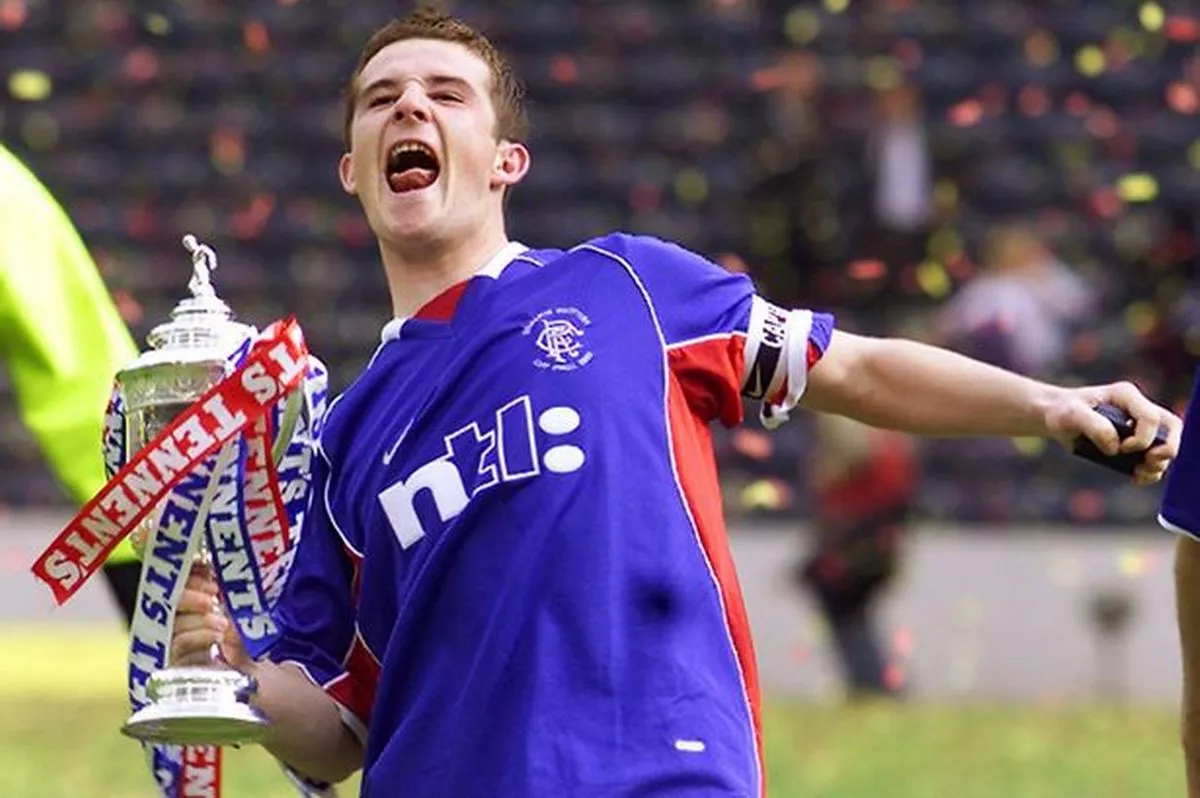
“You need someone with that Barry Ferguson attitude in the team. Barry had the right mindset that I’ve been talking about. I can only presume that the manager is trying to instil that in the players now.
“They might be skilful and talented but if you don’t have the right attitude, it’s not going to happen for you. Also, players have to take responsibility.
“In modern football everyone wants to blame the manager. When a player makes a bad pass or a mistake, the manager gets the blame.
“When the team loses, it’s the manager’s fault. At some point, players have to take responsibility.
“That’s how I grew up playing football – if you make a mistake, you put your hands up and do better next time. I think Rangers have a situation like that now.”
Steve Clarke has to select this Scotland squad to play Poland and make the necessary configuration modification to end the lethargy.

Scotland need a new blueprint after Euros failure
Given the prospect of a TV blackout for Scotland’s opening Nations League A match against Poland, it would be easy to crack a cruel joke about such a scenario doing the Tartan Army a favour after a disappointing Euro 2024 which was, for the most part, painful viewing.
However, the truth of the matter is that the prospect of a Scotland home fixture not being shown live anywhere – let alone free-to-air – is no laughing matter and even the most frustrated of supporters after the dismal showing in Germany would still be tuning in come 7.45pm on Thursday in the hope that Steve Clarke’s side can get back to winning ways.
Restricting live coverage of the match to the 50,000 inside Hampden would be a huge red face for the Scottish FA and reflect badly on the broadcasters who, let’s face it, would not allow such a scenario to develop around the English national team. It is over to Viaplay – who secured the rights to Scotland matches until 2028 only to withdraw from the UK market last year – the BBC, ITV, Premier Sports or anyone to ensure that a last-minute deal is brokered and an appropriate solution found.
Whatever the outcome, Clarke has to find a way to make Scotland enjoyable to watch again after a dismal 12-match sequence that has yielded just one victory. Even that became a chore to sit through as Scotland toiled to break down a limited Gibraltar side before eventually securing a 2-0 win.
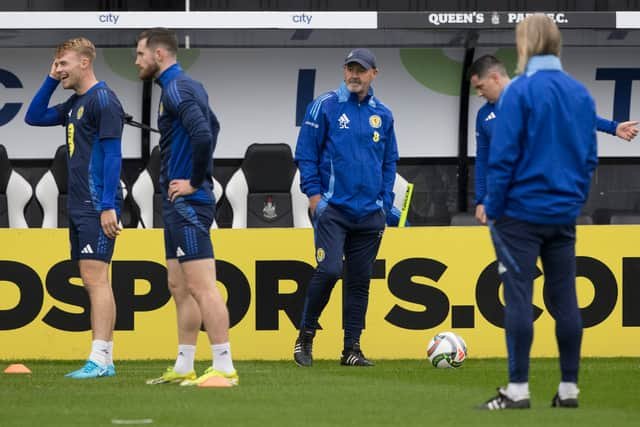
The momentous victories over Spain and Norway which set Scotland on a path to the Euros are now distant memories. What is fresh in the minds of fans is the manner in which Clarke’s side underperformed to exit the finals with the worst record of all 24 nations taking part, finishing with the joint lowest points total (1), most goals conceded (7) and worst goal difference (-5).
Perhaps we should have seen it coming with the warm-up matches providing little inspiration in the shape of a 4-0 defeat in the Netherlands, a first defeat to Northern Ireland at Hampden in 50 years, and the loss of two late goals in a 2-2 draw with Finland.
Clarke certainly should have seen it coming. Things had not been going in the right direction for long enough to know that a change in approach ought to have been considered – certainly by the Hungary match. While it may be too late for the Euros, Clarke can and must now come up with a new blueprint to lift Scotland out of their current malaise.
A five-at-the-back system initially devised to get Andy Robertson and Kieran Tierney into the same starting XI has run its course, certainly with the crop of players currently available. The injury absence of Tierney, plus first and second choice wing-backs Aaron Hickey and Nathan Patterson, and the attacking impetus they provide, enforces a tactical rethink.
Scotland need to go four at the back against Poland with Robertson, who excels in the position for Liverpool, at left-back and Anthony Ralston, who will be infinitely more comfortable as an orthodox right-back than he was at the Euros as a wingback where he appeared a square peg in a round hole, on the opposite side.
At left centre-back Scotland are now able to call upon a La Liga regular in Scott McKenna, who was part of a Las Palmas defence that held Real Madrid and Kylian Mbappe to a 1-1 draw only last week. He can be paired with an in-form John Souttar, now free of the injuries that have plagued his Rangers career and showing his class. Grant Hanley has spent most of the season on the Norwich bench so should now be behind those two in the pecking order. Likewise, Ryan Porteous who cannot expect to be brought straight back in from the start after his reckless red card in Munich.
For a Scotland side that created so few openings at the Euros, the prospect of having one less body in defence, and an extra one in midfield or attack, can only be viewed as a positive thing, particularly against a Poland side Scotland should be looking to beat at home. A 4-2-3-1 system should, for example, provide more support to a lone striker thanthe isolated Che Adams received in Germany in a 5-4-1.

Midfield is one area where Scotland can boast strength, even accounting for the loss of Callum McGregor following the Celtic captain’s decision to retire, prematurely at the age of 31, from international football. Billy Gilmour has to be the automatic first pick in central midfield and the most natural heir for McGregor, alongside his new Napoli team-mate Scott McTominay.
John McGinn could then play on the left of the three advanced midfield roles, dovetailing with Robertson, and had he not withdrawn from the squad, James Forrest could have been deployed on the right ahead of team-mate Ralston, with one of the Ryans – either Christie or Gauld – in the number 10. Gauld would be an intriguing choice given his long wait for recognition but Scotland need something different in attack, and the Vancouver Whitecaps playmaker could be the one to provide it. With Forrest injured, perhaps Christie could provide a threat coming in off the right, as he has in the past. Ben Doak, the 18-year-old for whom so much is hoped for, could inject some pace off the bench in the second half.
That then leaves the striking role. Adams would have been the preferred choice after completing a big summer move to Torino and scoring his first Serie A goal last week in a 2-1 win over Atalanta. But he too has withdrawn due to injury leaving Scotland with a choice between Birmingham City’s new £1.5m signing Lyndon Dykes, an out-of-form Lawrence Shankland or a young and upcoming Tommy Conway. In the case of Dykes, absence has made the heart grow fonder and he was certainly missed during the Euros. He has proven he can be a handful for defences at this level and a focal point for the team, so, for me, should get the nod.
My Scotland XI (4-2-3-1): Gunn; Ralston, Souttar, McKenna, Robertson; Gilmour, McTominay; Christie, Gauld, McGinn; Dykes.
Hibs boss David Gray left fuming after going up against ‘completely dominating’ Celtic

David Grey, the Hibernian manager, is not having a good day after seeing his club lose to Celtic for the second straight week.
Before defeating them 3-1 at Celtic Park earlier today, Brendan Rodgers’ team defeated them 2-0 at Easter Road on Sunday.
Similar to their first meeting, the Bhoys scored early on in the Scottish League Cup match thanks to a goal from Daizen Maeda.
Despite receiving harsh criticism from his coaching staff, Grey believes his players keep making the same mistakes and bemoans the way Celtic dominated the game.
David Grey is upset after losing to Celtic in the League Cup.
After the full-time whistle, Grey told his own team’s media channel that he was “angry.” He then used The Herald to provide a more thorough warning to his players.
“I feel like I’m repeating myself here because of what happened last weekend,” the Hibs manager remarked. We had the early advantage in the game, but after Celtic made their first forward pass and an own mistake, we lost the goal. which is unacceptable, particularly in light of what we discussed before to the game.
“Coming here at any time is a tough enough test, but you can’t give that calibre of opposition a goal of a start.”
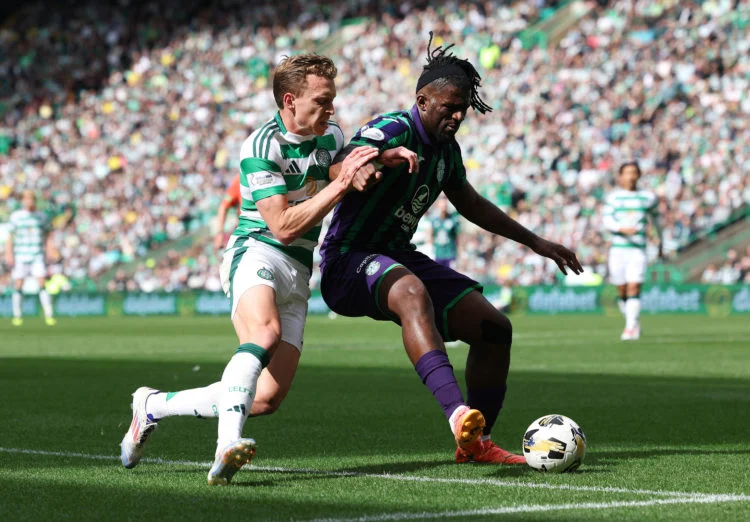
At Celtic Park, during the Premier Sports Cup match between Celtic and Hibernian, Alistair Johnston of Celtic and Rocky Bushri of Hibernian compete…
“Then, we were out of the game for the first half hour until we were able to come back into it after a set piece with a nice header and finish. But until then, Celtic was absolutely dominating, so we had to adjust the strategy a little bit to make ourselves even more difficult to beat.
“We reverted to our previous behaviour for the majority of the previous weekend’s game. I was somewhat let down by that. After we made two blunders in a row and lost a goal once more, I believed Celtic was back on top once more. We’ve reverted to the same behaviour, which is unacceptable for us at the moment.
This season, Hibs won’t be the only team that Celtic abandons in frustration.
To be fair to the Easter Road guys, it’s a difficult ask to play two positions against Brendan Rodgers’ Celtic team, particularly this late in the season.
While Grey and his players are only getting started, the Bhoys are clicking and cohesive.
Yes, they now appear to be lacking in confidence and talent, but most Scottish teams will look that way when playing the defending champions.
It is Celtic’s responsibility to make sure they feel this way after games, no matter how difficult it is for others. The group is doing a great job, and long may it continue.
-

 Celtic FC11 months ago
Celtic FC11 months agoVideo: Cameron Carter-Vickers incident penalty by VAR causes a flashpoint in the first half
-
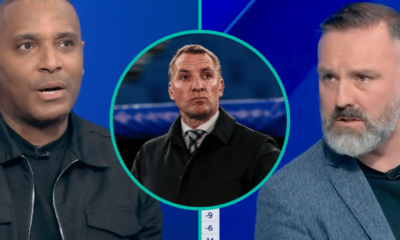
 Blog7 months ago
Blog7 months agoClinton Morrison confronts Kris Boyd on Sky Sports and makes it known that he supports Celtic
-

 Celtic FC7 months ago
Celtic FC7 months agoRoy Keane warns Tottenham what to do with Ange Postecoglou as he leaves a mysterious Celtic message in Spurs verdict
-
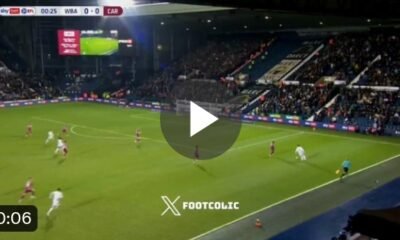
 Celtic FC9 months ago
Celtic FC9 months agoWatch Mikey Johnston ignite a West Brom frenzy as the Celtic winger scores the first goal in under 30 seconds
-

 Celtic FC9 months ago
Celtic FC9 months agoLiel Abada posted on social media 24 hours after Celtic’s absence
-

 Arsenal6 months ago
Arsenal6 months agoHope for Arsenal? Pep Guardiola picks three West Ham players who could dampen Manchester City’s victory celebrations
-
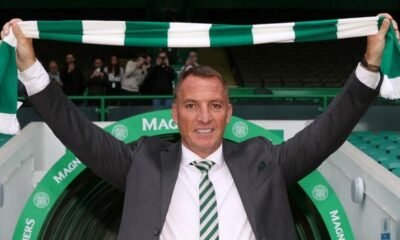
 Blog11 months ago
Blog11 months agoCeltic announce their first signing for January
-
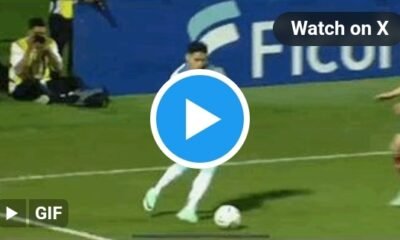
 Blog1 year ago
Blog1 year agoCeltic star steals the show and makes headlines by humiliating Porto player on national duty

